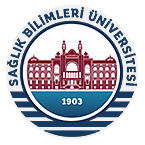ABSTRACT
Aims:
Germ cell tumors (GCT) are the most common malignancies, especially in males of 15 to 35 years of age. Tandem autologous hematopoietic stem cell transplantation (AHSCT) with carboplatin and etoposide (CE) has been performed for many years in relapsed and refractory germ cell patients, but information about AHSCT in patients with germ cell tumors is limited. We aimed to demonstrate some real-life data about patients who underwent AHSCT due to germ cell tumors.
Methods:
In this retrospective study, medical records of 20 patients who received CE as high-dose chemotherapy for AHSCT betweeen November 2016 and April 2018 were reviewed. Response rates at 12th month and toxicity profiles were evaluated.
Results:
A complete response was obtained in 15% (n=3) and a partial response was obtained in 20% (n=4) of the cases after AHSCT. The survival rate during AHSCT was calculated as 95%. When the progression-free survival time of the patients was examined, the median recurrence time was 6 months (95% CI: 5.08-6.91). The rate of recurrence was 57% in 6 months. Neutropenia, thrombocytopenia and anemia were observed during AHSCT in all patients.
Conclusions:
High dose chemotherapy as CE in AHSCT is a safe and effective treatment option in relapsed refractory GCT with an acceptable PFS and mortality rate. Also, high-dose CE was associated with low treatment-related mortality and reasonable side effects in patients with poor prognosis.



